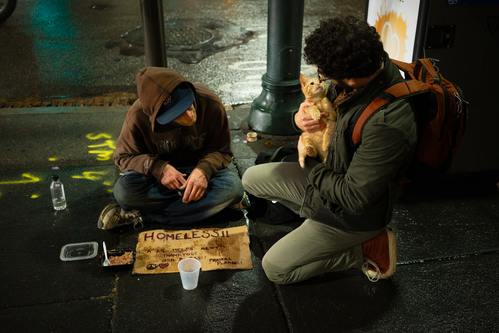Mercy is extending God’s unconditional love. Mercy is expressed as we extend compassion, forgiveness, and care to others as God extends mercy to us, undeserved and without limits. We follow teaching of Jesus in Matthew 25:40-45 in which Christ's followers are challenged to clothe, feed, and care for those in need.
In loving mercy we ask, “Who is broken? Who is in need? Who is my neighbor?” We ask these questions and act accordingly, not from a position of superiority but of solidarity for our sisters and brothers who are made in the image of God. Mercy is seeing ourselves in the brokenness of others, and leads us to a compassionate and just response.



